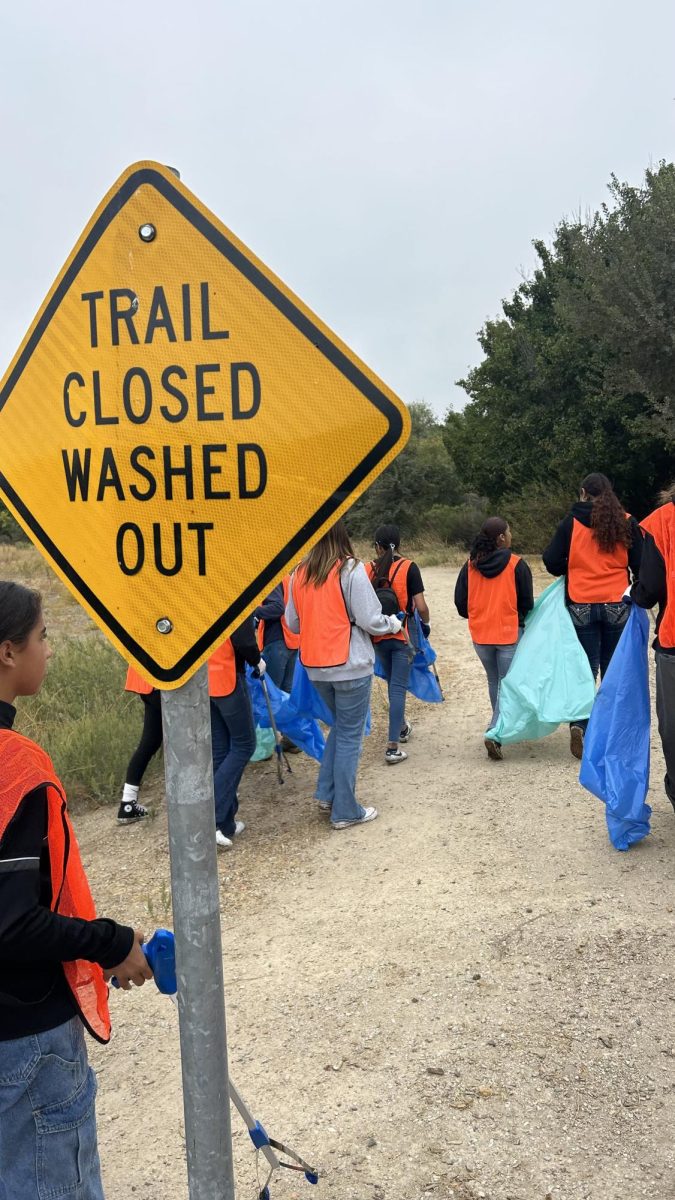Wilderness Club takes nine students backpacking to study dwindling Joshua trees
The beating rays of the sun force salty droplets to the surface of skin. Brittle thorns cling to sand-saturated, woolen socks. The soles of 24 boots desperately cling to gravel-coated boulders. But these Paso High field biologists would not change it for anything.
On March 18, nine students from the Wilderness Club and three Paso Robles High School teachers backpacked into Joshua Tree National Park, located in southeastern California, to collect data on the trees and compare with data collected in the 1970’s. The purpose of this study is to research the decline of the Joshua trees due to the increase of the average temperature of the park and drought.

The group was led by park ranger Neil Franks, who hopes to compare data recorded this year with data recorded by biologist James Hogen in 1970. Students measured the trees’ height, diameter, and branches in an effort to determine the effect the lack rainfall has had on the tree population, ultimately surveying a 500×500 meter plot.
“This study that’s getting started up is one that’s really pertinent to what’s going on with Joshua trees right now. Because the trees are threatened, it’s super important to get as much data on them as we can, and this study is allowing us to step in that direction,” senior Gabby Davis said.
These trees can be describes as almost Dr. Seuss-like, with “twisted… dagger-like spines,” according to the National Park Service. And here’s the catch: they aren’t really trees, just extremely large succulents. Joshua trees are monocots, meaning they possess multiple bundles of nutrient-carrying xylem and phloem, which in turn makes them more drought tolerant.
“Joshua trees are some of the most unique and bizarrely beautiful plants on Earth… everyone should go see them at least once in their life,” senior Daniel Tibbetts said.

After five blisteringly hot days and chilling nights, the backpackers completed the plot and traveled home with memories of beautiful sunsets and breathtaking views. From climbing mountainous boulders to spotting the shortest basal sprouts, the park provided these bearcats with the experience of a lifetime.
“It was outstanding and beautiful; I’ll remember the landscape when I got to the top of the mountains and learning about the Joshua trees forever,” junior Britney Mills said
These “trees” are not the only things that may become endangered if this drought keeps progressing. Species such as the yucca moth, which is responsible for pollinating the tree, may quickly disappear as well. Climate change is quickly destroying the Earth’s ecosystems, but hopefully we can begin to understand how to combat it.











